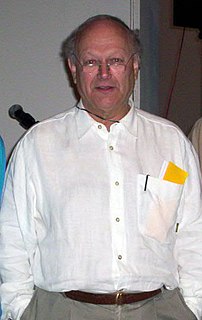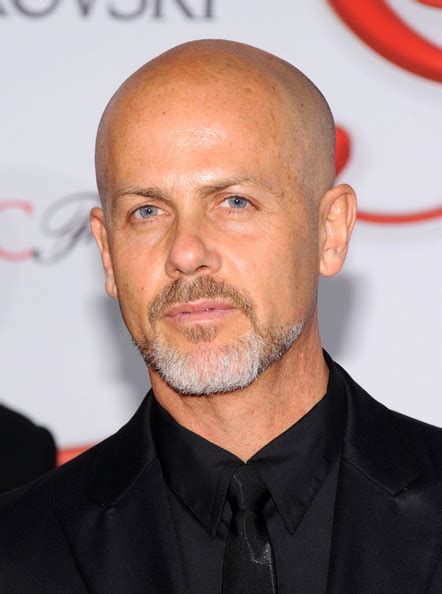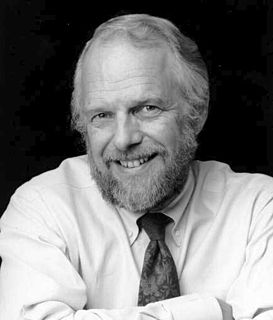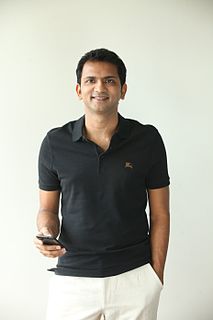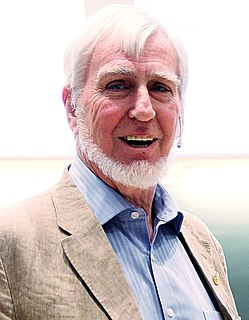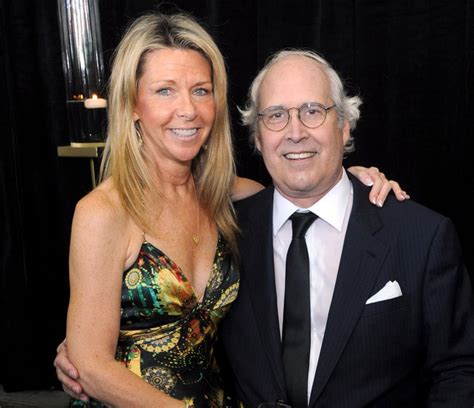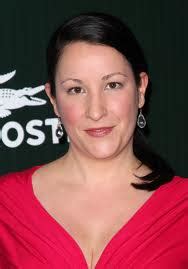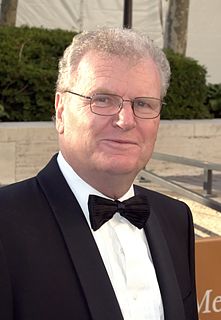Top 956 Technologies Quotes & Sayings - Page 13
Explore popular Technologies quotes.
Last updated on December 18, 2024.
Yeah, the majority of Brit+Co users are women, but DIY? You see kids DIY, adult men geeking out hardcore with anything related to woodworking and all these cool new technologies, metalwork, leatherworking, concrete making. Everyone has a passion. I truly believe it's in our DNA literally to build things.
I hope that Facebook and other Internet technologies were able to help people, just like we hope that we help them communicate and organize and do whatever they want to every single day, but I don't pretend that if Facebook didn't exist, that this wouldn't even be possible. Of course, it would have.
The U.S. government doesn't build your computers, nor do you fly aboard a U.S. government owned and operated airline. Private industry routinely takes technologies pioneered by the government and turns them into cheap, reliable and robust industries. This has happened in aviation, air mail, computers, and the Internet.
Cloud is so important because it enables digital transformation. It underpins disruptive new technologies in social, mobile, and analytics - and it is enabling industry leaders to compete in digital. Innovation is happening in the cloud - and cloud gives companies the speed and flexibility to be much more agile.
Even if every major government were to slap huge taxes on carbon fuels - which is not going to happen - it wouldn't do much to halt climate change any time soon. What it would do is cost us hundreds of billions - if not trillions - of dollars, because alternative energy technologies are not yet ready to take up the slack.
Has the Ministry assessed what manpower savings or cost efficiencies have been derived from such use of new technologies, and how policing capabilities have been enhanced? What new initiatives can we expect, and how will the police guard against their officers being “de-skilled” by over-relying on technology?
Zika has arrived on our shores, and the number of local infections is continuing to grow. Thankfully, companies like SpringStar are doing incredible work developing innovative tools to stop the spread of Zika. It's more important than ever that Congress provide the resources to deploy these technologies to the communities who need them.
We've been surrounded by images of space our whole lives, from the speculative images of science fiction to the inspirational visions of artists to the increasingly beautiful pictures made possible by complex technologies. But whilst we have an overwhelmingly vivid visual understanding of space, we have no sense of what space sounds like.
Whether you make an action blockbuster or a comedy or a drama, you've got the right camera and all the right technology to do it. In games, it's not the same yet, and I would like to see technologies dealing with cameras the way we do - dealing with bouquet, dealing with performance capture, with lighting - with all this stuff the way we do.
I have a really deep belief that we create technologies to empower ourselves. We've invented a lot of technology that just makes us all faster and better, and I'm generally a big fan of this. I just want to make sure that this technology stays subservient to people. People are the number one entity there is on this planet.
I have been saying this for some time, but customers are not interested in grand games with higher-quality graphics and sound and epic stories. Only people who do not know the video game business would advocate the release of next-generation machines when people are not interested in cutting-edge technologies.
CRISPR-enabled 'gene drives' enable us to make changes to the germ-line of organisms permanent such that changes spread through the entire wild population, including making species extinct on demand. Unlike nuclear weapons such technologies are not complex, expensive, and able to be kept secret for a long time.
Obviously technologies that are sustainable are a logical first step to creating a just society, one that doesn't trample life in all its forms, whether it's other humans or other life forms on the earth, one that acknowledges that we're all sharing the space and that there needs to be room for every living thing somewhere.
I cannot pursue my architecture without considering the minimization of energy consumption, simple and direct technologies, a respect for site, climate, place and culture. Together, these disciplines represent for me a fantastic platform for experimentation and expression. Of particular importance is the junction of the rational and the poetic resulting hopefully in works that resonate and belong to where they reside.
I'm not inspired by space in that kind of futuristic sense, but I've never liked retro. Of course, we always get references from the past, but that doesn't mean that the clothes have to look like the past. We need to look forward, which is why I'm fascinated by new materials, technologies, techniques, and unusual ways to use colors or textures.
I've always been passionate about technology. Starting tech businesses was a very natural extension. Thus, keeping up to date with latest trends is not a process driven activity for me. If one wants to innovate or even survive in today's competitive world, one must keep abreast of emerging new technologies.
A company can spend hundreds of thousands of dollars on firewalls, intrusion detection systems and encryption and other security technologies, but if an attacker can call one trusted person within the company, and that person complies, and if the attacker gets in, then all that money spent on technology is essentially wasted.
The good news is we are seeing an incredible surge in non-animal technologies in laboratories. With researchers using stem cells, visually impaired people may one day have new corneas and lenses grown from their own cells. That is likely to be a more effective and cheaper approach than using animals.
By downplaying clear targets and frameworks, ... the Prime Minister is ignoring calls from UK companies who want a clear framework to operate within now. There has been a lot of discussion about the false choice between targets and technologies, but the reality is that without both we cannot achieve either.
Computer science only indicates the retrospective omnipotence of our technologies. In other words, an infinite capacity to process data (but only data -- i.e. the already given) and in no sense a new vision. With that science, we are entering an era of exhaustivity, which is also an era of exhaustion.
Cognitive neuroscience is entering an exciting era in which new technologies and ideas are making it possible to study the neural basis of cognition, perception, memory and emotion at the level of networks of interacting neurons, the level at which we believe many of the important operations of the brain take place.
That is certainly the point: when the human species was born, on the African savanna, life was pretty good; we could live in harmony with the rest of nature, and that's what I've been calling Eden. The only technologies that humans devised for some 2 million years were fire and the hand ax. That's all. Eden didn't need anything more
When we look at Huawei and ZTE, there are significant indicators that - because of Huawei's close relationship with the Chinese military and Chinese intelligence, the use of Huawei technologies could create backdoors for areas of access to consumer data or company data that we would find unacceptable.
And there are some - Bernie [Ecclestone] and others - who are embracing new technologies. When Sky UK started to broadcast there was an argument that audience would come down because it is pay TV. But the actual quality of the production and the use of technology and the engagement of the viewer is much better than it ever was. The product is simply better.
Trying to use all the existing technologies that were out there wouldn't work for us because none of them were flexible. Everything was rigid in some way, so we had to go on a manhunt, essentially for something that was a viable technology. So it was a good four-months of just designing and figuring out the lights.
Most of the big breakthrough technologies/companies seem crazy at first: PCs, the internet, Bitcoin, Airbnb, Uber, 140 characters.. It has to be a radical product. It has to be something where, when people look at it, at first they say, ‘I don’t get it, I don’t understand it. I think it’s too weird, I think it’s too unusual.’
A lot has changed in India in the last decade. We can attribute the growth of India's startup ecosystem to the increased penetration of affordable smartphones and data connectivity across the country. Technology is no longer a luxury. People across generation and geographies are making use of mobile technologies. Startups have capitalised on this phenomenon.
When color TV arrived, it just sat there and you saw color. I've been to retail stores where there were no 3-D glasses at all and the 3-D images were all blurred. People were coming in and saying, 'I don't want to buy that.' There's a lot of marketing connected to introducing technologies and especially introducing new experiences.
When color TV arrived, it just sat there and you saw color. I've been to retail stores where there were no 3-D glasses at all and the 3-D images were all blurred. People were coming in and saying, "I don't want to buy that." There's a lot of marketing connected to introducing technologies and especially introducing new experiences.
It was an excess of fantasy that killed the old United States, the whole Mickey Mouse and Marilyn thing, the most brilliant technologies devoted to trivia like instant cameras and space spectaculars that should have stayed in the pages of Science Fiction . . . some of the last Presidents of the U.S.A. seemed to have been recruited straight from Disneyland.
We have to be bringing carbon out of the atmosphere, and we can't wait for these magical technologies that are somehow going to suck the carbon out of the atmosphere in the future and mean we can do business as usual. And so, what we have to do, what we're going to need to do, is really work with nature to repair the climate.
We need a global approach to this from all sides. We need to educate people, we need the scientists to create new technologies, we need the engineers to create the networks, we need every human being to be aware of how precious water is and save it. Everybody has to be involved in a very firm and assertive way.
Because these firms listened to their customers, invested aggressively in new technologies that would provide their customers more and better products of the sort they wanted, and because they carefully studied market trends and systematically allocated investment capital to innovations that promised the best returns, they lost their positions of leadership.
New technologies will always demand and deserve careful navigation and difficult readjustments. But the weakening or de facto abolition of copyright will not merely roil the seas, it will drain them dry. Those who would pirate what you produce have developed an elaborate sophistry to convince you that they are your victim. They aren't. Fight back.
The high level of the technologies used during the Gulf War makes this conflict quite unique, but the very process of de-realization of the war started in 1945. War occured in Kuwait, but it also occured on the screens of the entire world. The site of defeat or victory was not the ground, but the screen.
We need to come up with use cases for this technology that drive clear benefits for individuals and institutions - these are our customers. Too often we see bitcoin and blockchain technologies as solutions in search of a problem. We don't just need these systems to be technically better than the alternatives - we need them to be more user-friendly.
We've already seen shifts happening in some of the big companies - Google, Apple - that now understand how vulnerable their customer data is, and that if it's vulnerable, then their business is, too, and so you see a beefing up of encryption technologies. At the same time, no programs have been dismantled at the governmental level, despite international pressure.
Attention is the most powerful tool of the human spirit. We can enhance or augment our attention with practices like meditation and exercise, diffuse it with technologies like email and Blackberries, or alter it with pharmaceuticals. In the end, though, we are fully responsible for how we choose to use this extraordinary tool.




















